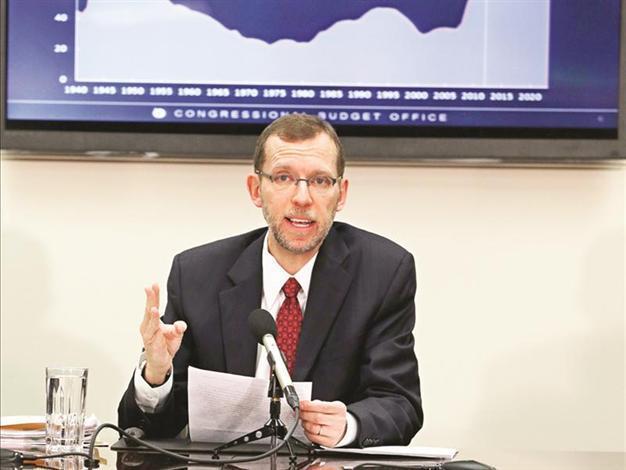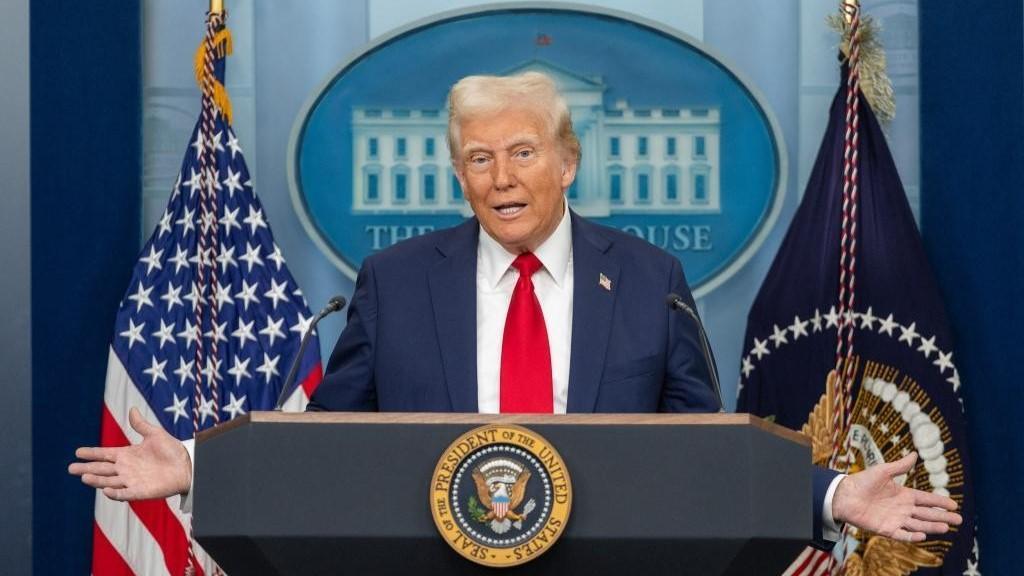Budget deficit to drop, but problem stays: CBO
WASHINGTON - Reuters

Congressional Budget Office Director Douglas Elmendorf gestures as he speaks on Feb. 5 about the office’s annual Budget and Economic Outlook during a news conference at the Ford House Office Building in Washington. AP photo
The U.S. budget deficit will drop below $1 trillion this year for the first time during Barack Obama’s presidency, the Congressional Budget Office said on Feb. 5, but it warned that debt will swell to unsustainable levels without further action by lawmakers.CBO forecast that the deficit for fiscal 2013, which ends Sept. 30, will shrink slightly to $845 billion after four straight years above $1 trillion. The reason is an improving economy and higher taxes paid by wealthy Americans.
The CBO analysis, which will feed into Congress’ bitter debate over how to tame deficits, assumes that $85 billion in automatic spending cuts will launch as scheduled on March 1.
It said the fiscal tightening from those across-the-board cuts and from higher taxes will slow economic growth to an anemic 1.4 percent by the end of 2013, causing the unemployment rate to edge higher to 8.0 percent by then from about 7.9 percent currently.
The analysis is the first from the non-partisan budget agency to incorporate the New Year’s deal to avert the “fiscal cliff,” which restored pre-2001 tax rates on income above $450,000 for couples and let a temporary payroll tax reduction expire. The automatic spending cuts were only delayed for two months until March 1.
But after absorbing these headwinds, the economy will regain momentum in 2014 and fill federal coffers at a faster pace, even without further spending cuts or tax hikes, CBO said. It forecast a $616 billion deficit in fiscal 2014 and a $430 billion deficit in fiscal 2015, equivalent to 2.4 percent of U.S. gross domestic product at that time, a level that many economists view as sustainable.
But deficits will rise steadily from mid-decade, nearing $1 trillion again by 2023, according to the forecast. The 10-year cumulative deficit is forecast at $6.958 trillion.
“Deficits are projected to increase later in the coming decade, however, because of the pressures of an aging population, rising health care costs, an expansion of federal subsidies for health insurance, and growing interest payments on federal debt,” the CBO said in the report.
The CBO warned that U.S. debt held by the public would continue to mount, staying at the highest levels as a percentage of GDP since about 1950 through the next decade, reaching 77 percent of GDP by 2023.
Republicans seized upon the report as evidence that their worst fears - a European-style debt crisis - will come true without deep spending cuts to expensive health care programs such as Medicare and Medicaid.Democrats put the emphasis on the progress made in reducing deficits and in fostering economic recovery.
The report comes as President Barack Obama called for another temporary delay in the automatic spending cuts, an overture that was quickly rebuffed by House Republicans.
Obama’s short-term budget fix offer
The president urged Congress to pass a small package of spending cuts and tax reforms to delay larger, automatic cuts from going into effect and damaging the economy on March 1.
Republican leaders quickly rebuffed his proposals, rejecting what they saw as a bid for new tax increases after lawmakers agreed to raise rates for top U.S. earners earlier this year.
If launched as scheduled, the cuts - dubbed the “sequester” - would reduce federal spending across the board by about $85 billion for one year, split evenly between military and domestic programs. The total of reductions through 2022 would amount to roughly $1.2 trillion.
















